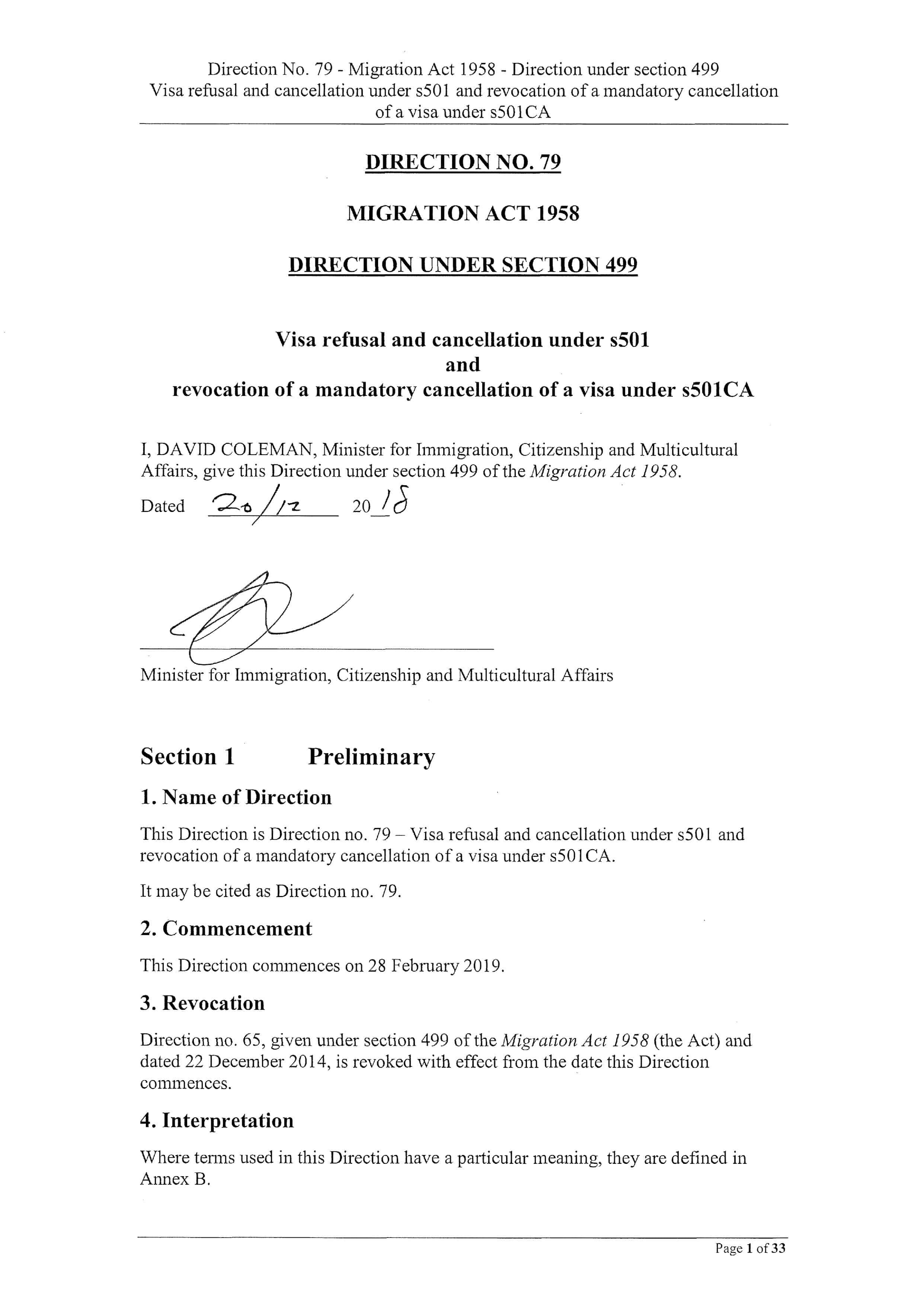What is Ministerial Direction 90?
Migration Act 1958 (Cth), s 501 Visa cancellations and refusals
This question is important if you are a non-citizen living in Australia and:
1. your visa is being considered for cancellation, or has been cancelled, under section 501(2) of the Migration Act;
2. your visa has been mandatorily cancelled under section 501(3A) of the Migration Act; or
3. your visa application is being considered for refusal, or has been refused, under section 501(1) of the Migration Act.
From the 15th of April 2021, Direction 90 is replacing Direction 79 (see our blog post dealing with Direction 79) in dealing with these matters.
Like Direction 79, you can’t find Direction 90 through a Google search, so we have provided a copy of Direction 90 here.
Key Changes under Direction 90
Direction 90 has introduced some major changes.
Major Change #1
There is now one set of primary and secondary considerations that must be considered by a decision-maker (except for a Minister) for s 501 cancellations, mandatory cancellations and refusals. Previously, these different matters each had separate sets of considerations. See Table 1 below for a summary of the differences in what needs to be considered.
TABLE 1: PRIMARY AND SECONDARY CONSIDERATIONS IN DIRECTION 79 VERSUS DIRECTION 90
As with Direction 79, the primary and secondary considerations in Direction 90 are given different weight, depending on the non-citizens circumstances.
Major Change #2 – A new Primary Consideration: Family Violence
The second major change is Direction 90 contains an increased focus on non-citizens who have committed forced marriage or family violence. Both of these terms are defined specifically in Direction 90, but the definition of family violence reflects the definition of family violence under the Family Law Act 1975 (Cth).
With respect to family violence, Direction 90 now considers (as a Primary Consideration) whether a non-citizen has committed family violence (regardless of whether they have been convicted for an offence or not). This means Direction 90 contains four primary considerations, whereas Direction 79 only contained three (see Table 1 above). Please note that family violence has a broad definition and Direction 90 is not limited to the consideration of criminal convictions for family violence!
Forced marriage is dealt with under the primary consideration dealing with the Protection of the Australian Community.
Major Change #3 – Independent evidence of risk
The third key change is that for certain serious offences (for example, family violence), the Principles in Paragraph 5.2 of Direction 90 expressly allows decision makers to disregard objective evidence of the non-citizen’s likelihood of reoffending (for example, forensic psychology reports). While decision-makers technically had the flexibility to do this in the “weighing exercise” under Direction 79, Direction 90 states that:
‘…The expectation of the Australian community applies regardless of whether the non-citizen poses a measurable risk of causing physical harm to the Australian community.’ Paragraph 5.2(3) of Direction 90.
‘…the inherent nature of certain conduct such as family violence and the other types of conduct or suspected conduct mentioned in paragraph 8.4(2) is so serious that even strong countervailing considerations may be insufficient in some circumstances, even if the non-citizen does not pose a measurable risk of causing physical harm to the Australian community’: paragraph 5.2(5) of Direction 90.
There are various textual changes throughout Direction 90 that we haven’t discussed (for example, changes to the International non-refoulement consideration and the Impact on victims consideration), but the three changes we have discussed above are three major differences between Direction 79 and Direction 90.
What do these changes mean for you?
Overall, Direction 90 is easier to apply than Direction 79 because there is only one set of primary and secondary decision-makers to consider.
Direction 90 appears to be harsher in its considerations, especially as non-citizens were already at a statistical disadvantage (see Table 2 below for figures about revocation decisions for mandatory visa cancellations under section 501(3A) of the Migration Act).
While, on the face of it the changes found in Direction 90 appear to be more stringent and focused on particular types of offending (eg. family violence), we anticipate that there will be a transition period where the Tribunals and Courts interpret the distinct changes and nuances introduced by the new Direction 90, and we are hopeful that its interpretation does not make it materially harder to receive a positive decision for the non-citizen facing visa refusal or cancellation under s501 of the Migration Act 1958.
TABLE 2: REVOCATION DECISIONS UNDER SECTION 501CA
Source: Department of Home Affairs website – Statistics on Visa Cancellation accessed 12 April 2021.
Direction 90 will be a challenge for non-citizens subject to decisions under section 501(1), section 501(2) or section 501(3A) of the Migration Act. It remains a complex and delicate balancing matter heavily dependent on the non-citizen’s circumstances, so it is important that you seek legal advice in order to put the best case forward to the decision-maker.
For more information, or feel free to contact us for a chat with an understanding, experienced, and compassionate lawyer.
Disclaimer: The contents do not constitute legal advice, are not intended to be a substitute for legal advice and should not be relied upon as such. You should seek legal advice or other professional advice in relation to any particular matters you may have.






![TABLE 1: VISA DECISIONS UNDER SECTION 501 Source: Department of Home Affairs,Submission to Joint Standing Committee on Migration, Inquiry into review processes associated with visa cancellations made on criminal grounds, [Submission no. 29], 11 May …](https://images.squarespace-cdn.com/content/v1/58d4ad8f2994cafbe9efde16/1583071246616-SS29X4VT6TPXE4XEHKTM/Section+501+Visa+Cancellations)


